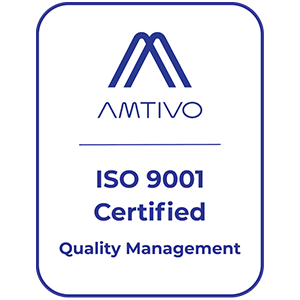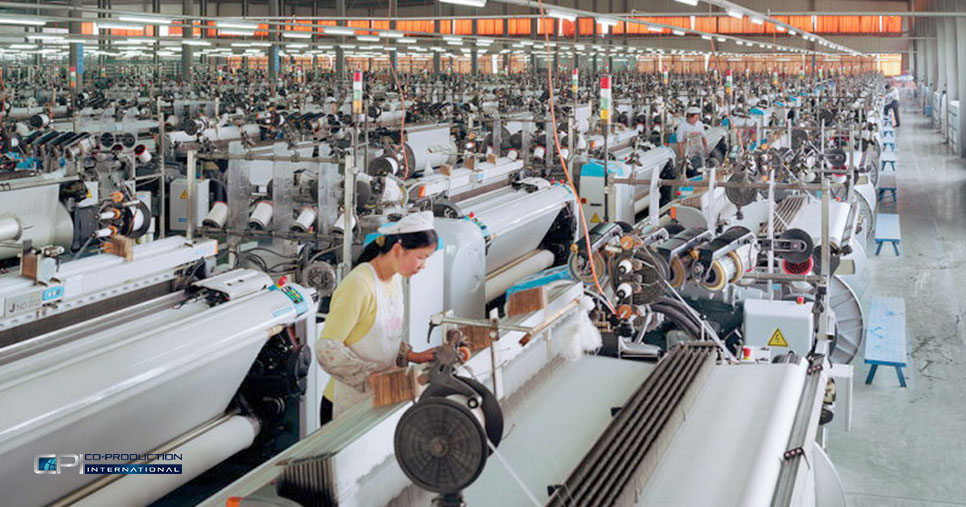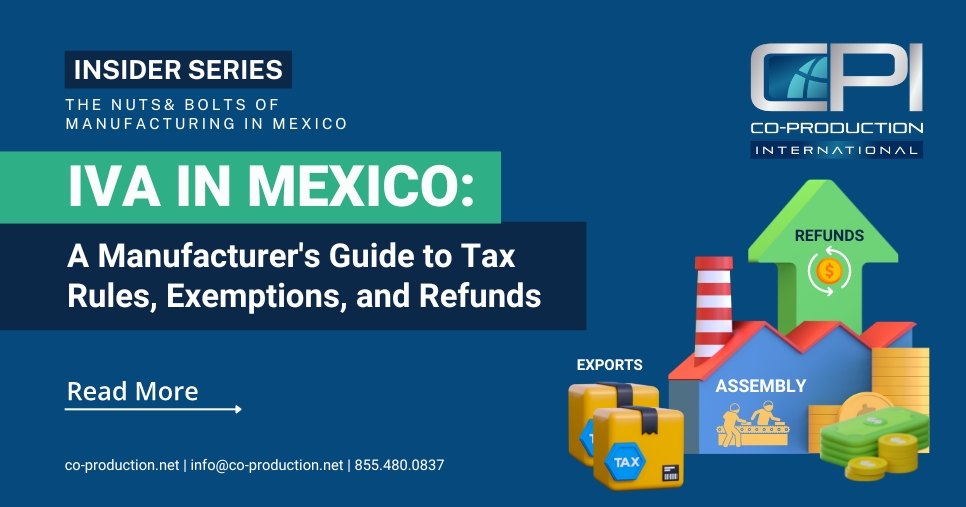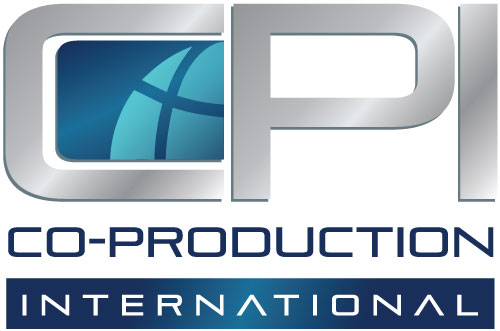"Many people would have you believe that doing business with México is difficult, but that is just not the case." - A Conversation With Eduardo Acosta, Vice President, RL Jones Customhouse Brokers, Inc.
When expanding manufacturing operations to Mexico, companies must consider the costs and efficiency associated with moving raw materials and finished goods. Expect direct and indirect costs to include:
- Freight costs
- Shipping time
- Infrastructure
- Duties
- Regulatory Costs
- Potential Delays
That being said, there are a lot of misconceptions about the difficulties of import/export while manufacturing in Mexico. To demystify the process, we sat down with Eduardo Acosta, Vice President for RL Jones Customhouse Brokers, Inc. With over 27 years’ experience in import/export, Mr. Acosta gives us unique insight into the nuts and bolts of moving raw materials and finished goods across the border.
Is it difficult to import raw materials and export finished goods while manufacturing in Mexico?
Doing business on the southern border is not as difficult or unpredictable as people would make you believe. The southern border on both sides is full of competent and professional firms to partner with you to make your business in México very successful.
There is a reason clichés like “don’t reinvent the wheel” stick around – because they still hold water. Trade between the US and México didn’t start with NAFTA, it was improved under it by eliminating tariffs and improving import/export infrastructure. For more than 50 years our mutual governments and manufacturing experts in México have worked hand-in-hand with US companies to minimize barriers, improve physical and bureaucratic infrastructure, reduce time in transit and lower costs across the board. Just as an example, Acosta’s firm RL Jones has been around since 1938 and now maintain nine offices along the US/México border.
Time in Transit: Just How Long Does It Take?
This is actually one of the other added benefits to doing business in México – cutting down lead times, which adds to the overall efficiency and cost effectiveness of the business not to mention being able to carry less inventory and meet the strict time demands of their customers. The average processing time for both northbound and southbound cargo at the various border ports is generally under two hours for each trip. With programs like C-TPAT for low risk importers and exporters this can shorten the time even more.
 Time is money. When you consider total landing costs of expanding operations outside the US, lower labor costs are only one part of the equation. Equally important is how long it takes to get raw materials to your facilities and finished goods to market. The sheer distance and time to get products to and from places like China have solidified México as the most ideal location.
Time is money. When you consider total landing costs of expanding operations outside the US, lower labor costs are only one part of the equation. Equally important is how long it takes to get raw materials to your facilities and finished goods to market. The sheer distance and time to get products to and from places like China have solidified México as the most ideal location.
In addition to next-door access to your US markets, companies manufacturing in Mexico can significantly reduce border crossing delays and customs processes. One such way is to become a member of the Customs-Trade Partnership Against Terrorism (C-TPAT). C-TPAT is a joint public-private sector partnership to strengthen supply chains while improving security and is managed by US Customs and Border Protection. Since its inception in 2001, more than 11,400 certified partners have been accepted into the program including manufacturers, customs brokers, importers/exporters, highway, rail and sea carriers, and more.
There is no cost to apply and once accepted as a “low-risk” partner, your company will receive benefits such as:
- Reduced number of CBP examinations
- Front of the line inspections
- Possible exemption from Stratified Exams
- Shorter wait times at the border
- Assignment of a Supply Chain Security Specialist to the company
- Access to the Free and Secure Trade (FAST) Lanes at the land borders
- Access to the CTPAT web-based Portal system and a library of training materials
- Possibility of enjoying additional benefits by being recognized as a trusted trade Partner by foreign Customs administrations that have signed Mutual Recognition with the United States
- Eligibility for other U.S. Government pilot programs, such as the Food and Drug Administration’s Secure Supply Chain program
- Business resumption priority following a natural disaster or terrorist attack
- Importer eligibility to participate in the Importer Self-Assessment Program (ISA)
- Priority consideration at CBP’s industry-focused Centers of Excellence and Expertise
IMMEX
The main advantages [of the IMMEX program] are access to the vibrant and cost-effective workforce in Mexico, the close proximity to the US market for their finished goods, and the great tax breaks and incentives the Mexican government offers. A company under the IMMEX program can bring in most raw materials and machinery while paying no import duty under the condition that all of the goods are exported within the stipulated time frames. This is a very attractive tax incentive for foreign companies to open up their assembly and manufacturing operations in Mexico.
For many companies who choose the low-risk option of operating under a shelter company in Mexico are automatically also under the IMMEX program. IMMEX allows companies to import raw materials duty-free for production in México with finished goods being returned to the US within 18 months. The IMMEX program is revolutionary in that it supports the reality of how manufacturing in the border region works. It’s easy to understand how U.S. imports from México contain 40% U.S content on average. This region is about co-production, not complete shifts of manufacturing flight. The IMMEX program also works for US manufacturers operating independent corporations in Mexico.
Customs Broker Fees
An average Customs Brokerage fee at the Southern Border for importation into the USA is approximately $ 60.00, and for exportations the average fee is approximately $20.00 while an e-manifest will cost you around $10.00 each.
You read that right. Custom brokerage fees aren’t magic – there are set fees depending on a variety of factors in your operation. When your company works with CPI and brokerage firms like RL Jones, the costs are known and can be factored into monthly balance sheets and expected expenses. If your company is considering an expansion to México – now is the time for a free cost analysis of doing so.
What Happens if your shipments get a “Red Light”?
 “Well in the case of shipments being red-lighted for inspection, this is a very delicate matter. In the cases where either Mexican or US Customs requests to examine a shipment the outcome can be a multitude of things. Obviously most of the time there are no anomalies or discrepancies found between the documentation and the physical goods, but in the case of a discrepancy it is important to have a customs professional with experience dealing with the authorities working on your behalf. A broker or shelter provider like CPI has seen all types of scenarios and can work professionally and expeditiously to either mitigate or all together alleviate the situation avoiding any unnecessary delays or additional costs from any fines or penalties.”
“Well in the case of shipments being red-lighted for inspection, this is a very delicate matter. In the cases where either Mexican or US Customs requests to examine a shipment the outcome can be a multitude of things. Obviously most of the time there are no anomalies or discrepancies found between the documentation and the physical goods, but in the case of a discrepancy it is important to have a customs professional with experience dealing with the authorities working on your behalf. A broker or shelter provider like CPI has seen all types of scenarios and can work professionally and expeditiously to either mitigate or all together alleviate the situation avoiding any unnecessary delays or additional costs from any fines or penalties.”
When you work with CPI and brokerage firms like RL Jones you have team of experts who have seen it all. There is no need to panic – in the off chance of “red lights” during customs, your experienced local team is at the ready to expeditiously resolve the situation and get your commodities back on the road.
Working with CPI & RL Jones Customshouse Brokers
We’ve covered the hot topics surrounding import and export while manufacturing in Mexico. We hope that this information leaves you confident in the ease, efficiency and experience of working with CPI and customs brokers on the US/México border. If you still have questions – please contact us todaycontact us today!
About RL Jones Customshouse Brokers, Inc.
RL Jones was founded in 1938 by Earl D. Roberts in Calexico Ca. Over the years, we expanded our coverage to include all major U.S Southwest borders Ports. Today, we employ more than a hundred and fifty individuals system wide. Our trained and motivated team of professionals delivers integrated services to meet your Import/Export, warehousing, transportation and freight forwarding needs, with the highest degree of integrity. Our offices are staffed by 8 Licensed Brokers. www.rljones.com
Would You Like to See Top Manufacturing Operations in Action and Learn About the Ways You Can Start Manufacturing in Mexico?
Request Your Industrial Tour Here



 Time is money. When you consider total landing costs of expanding operations outside the US, lower labor costs are only one part of the equation. Equally important is how long it takes to get raw materials to your facilities and finished goods to market. The sheer distance and time to get products to and from places like China have solidified México as the most ideal location.
Time is money. When you consider total landing costs of expanding operations outside the US, lower labor costs are only one part of the equation. Equally important is how long it takes to get raw materials to your facilities and finished goods to market. The sheer distance and time to get products to and from places like China have solidified México as the most ideal location. “Well in the case of shipments being red-lighted for inspection, this is a very delicate matter. In the cases where either Mexican or US Customs requests to examine a shipment the outcome can be a multitude of things. Obviously most of the time there are no anomalies or discrepancies found between the documentation and the physical goods, but in the case of a discrepancy it is important to have a customs professional with experience dealing with the authorities working on your behalf. A broker or shelter provider like CPI has seen all types of scenarios and can work professionally and expeditiously to either mitigate or all together alleviate the situation avoiding any unnecessary delays or additional costs from any fines or penalties.”
“Well in the case of shipments being red-lighted for inspection, this is a very delicate matter. In the cases where either Mexican or US Customs requests to examine a shipment the outcome can be a multitude of things. Obviously most of the time there are no anomalies or discrepancies found between the documentation and the physical goods, but in the case of a discrepancy it is important to have a customs professional with experience dealing with the authorities working on your behalf. A broker or shelter provider like CPI has seen all types of scenarios and can work professionally and expeditiously to either mitigate or all together alleviate the situation avoiding any unnecessary delays or additional costs from any fines or penalties.”
.png)







